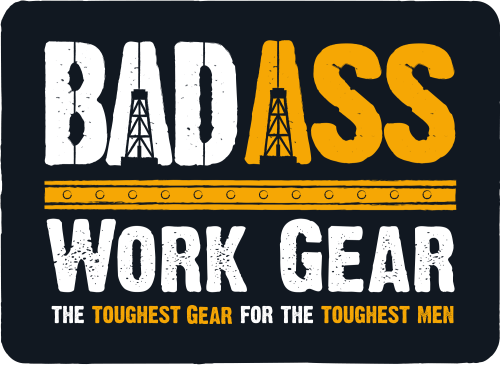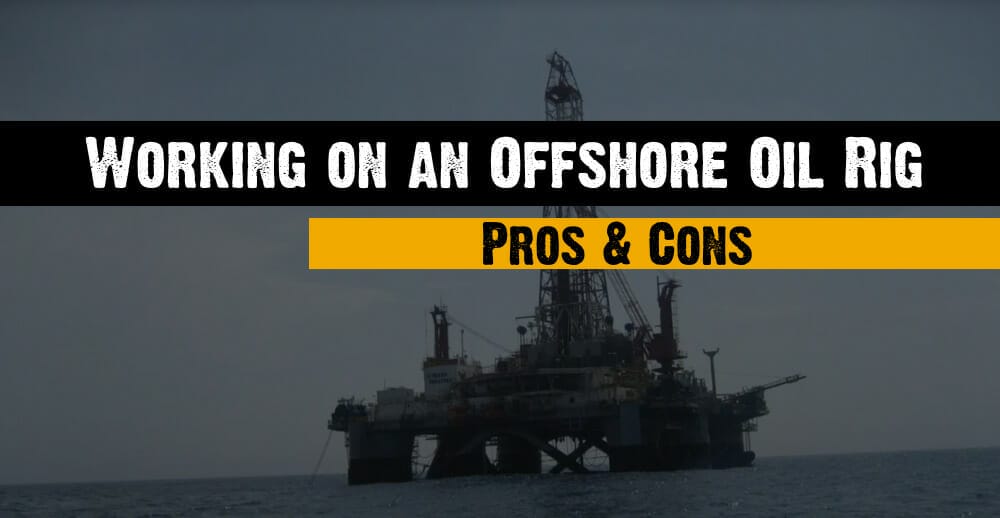Pros and Cons of Working on an Offshore Oil Rig
No job is perfect, as anyone who has ever held a job knows; however, the pros and cons of working in the oil industry are significantly more pronounced than in many others. For instance, while the pay for the majority of positions in the industry is great, the hours are long, and extensive travel is often required. Similarly, while the work environment of an offshore rig is never dull, it can also be physically demanding, unpredictable, and even dangerous, if the proper protocols are not followed. That said, if you do not mind physically demanding work, and slight overhang of danger, few industries in the world offer the kind of salary and opportunities for advancement as the oil industry provides.
Pro: Excellent Pay Scale
In the world of offshore oil drilling, the salaries for even entry-level positions range from $47,000 to $80,000 per year. More technical positions, such as Chief Electrician, and managerial positions, such as Installations Manager and Company Man, produce salaries of $83,000 to $160,000 per year. When taking into account the fact that many workers only work six to nine months of the calendar year, the compensation for offshore positions is even more impressive.
Con: Long Hours
Because the work on an offshore rig is never ending, the majority of workers are required to work 12-hours shifts, seven days a week, for seven to 28 days at a time. Additional overtime is required on an emergency or project basis. It is not uncommon to work upwards of 80 hours per week.
Pro: Extended Leave
The work schedule of an offshore rig is rotational, with the duration of rotations varying from seven to 28 days. For instance, persons working on a 7/7 rotation have seven days off for every seven days they work, while a 14/ 14 or 28/28 rotation yields 14 to 28 days off, for every 14 to 28 days on. Many workers choose to work only a portion of the year when it is busy—such as winters in Canada—and then take a portion of the year off, such as summer or fall, depending on rig location. After all, if you’ve made sixty-grand in six months, you’ve more than earned that vacation to the Caribbean and elusive title of ‘Beach Bum.’
Con: Extended Time Away From Home
If you cannot handle being away from home seven to 28 days at a time, or if you have family members that depend on your presence in the home on a daily basis, then work on an offshore rig is not for you. That said, you could always work on a land-based rig, or as part of a seismic exploration team. The pay for land-based positions isn’t quite as high as for offshore positions, however you will be able to go home at the end of the day, in the majority of cases.
Pro: Training and Education
Because many oil companies provide training and education for entry-level positions, it is possible to obtain a position in the industry without prior training. In addition to the training you will receive onsite, all workers are required to complete First-Aid and extensive safety training, administered by the Rig Safety and Training Coordinator (RSTC). As you move up the ranks, you may have the option of attending company-sponsored educational seminars and/or certificate programs. If so, you should take advantage of these opportunities, as the more training and experience you have, the more positions you will be qualified to apply for. Also, your rate of pay is likely to increase with training and education.
Con: Danger Factor
As you’ve probably already guessed, the work on an offshore rig can be dangerous—hence all the safety training. Not only is the work physically demanding, leading to injuries such as sprains, muscle pains, and severe fatigue; additional injuries result from falls, burns, chemical exposure, machinery malfunctions, and even explosions. It is the responsibility of the RSTC to administer the training designed to minimize the danger factor, however no amount of training can eliminate it altogether. (Side note: RSTC is one of the highest paying entry-level positions on the rig, with an annual average salary of $80,000. Many RSTCs are former nurses, EMTs, or medical technicians.)
Pro: Health Insurance
On the flipside of the danger factor, few industries in the world offer better health insurance than the oil industry. After all, in order for production to continue, workers must maintain the degree of physical health required to execute their job functions. While the details of insurance plans vary, the majority of plans include vision, dental, and personal injury coverage.
Pro: Excellent Opportunities for Advancement
For a truly motivated individual in good physical condition, the opportunities for advancement in the oil industry can be limitless. Many workers begin at the bottom, in positions such as a Maintenance Roustabout, Painter or Motorman, only to work their way up to more technical or managerial positions. The key to advancement is an eagerness to learn, and the ability to apply learned techniques and skills on a daily basis.
Pro/Con: The Great Outdoors
Come rain, shine, sleet or lighting, offshore installations operate 24 hours a day, in all weather conditions. If you like working outdoors, and you do not mind getting caught in a thunderstorm, this could be the job for you. Conversely, if you burn in the sun and melt in the rain, you might want to consider another line of work, or another sector of the oil industry.
Conclusion
As you can see from the list above, the pros of working in the oil industry outweigh the cons, provided you are physically fit, mentally acute, and eager to learn. If you decide to pursue a career in the oil industry, begin by relocating to an industry hotspot, such as Alberta or Nova Scotia, Canada, Texas in the U.S., or the Middle East. In other words, follow the oil! Being available for job interviews, job fairs, and company-sponsored educational seminars will greatly increase your chances of obtaining a job in the oil industry.


!my boyfriend work in an offshore rig. I don’t see him often because i work in east cost. He claim he is in the platform working for almost four months now. I mean literally not going home at all for that span of time. My question is , is he telling me the truth? Is it really possible that workers stays in the pkatform that long? Or he us lying to me.
Good Day..I am considering going into this field of work the Rig LIfe. all i would like to know is if I do. Can i access my banking account to buy data or itunes packages from the rig or does one have to see to that before hand. Can video calls be made or normal calls for that matter? I know to me this sounds stupid but its something that is on my mind. Thanking you in advance. Noel
Please I need ideas on the 14 day on and 7 days offs working schedule
Is not lying
I would like to work in the offshore but I’m on parole but I sure do like to work and get after it.
My boyfriend says he is on rig and it has broken parts and he has to come up with the money to fix it himself. He was me to send him 9000. To pay for parts and laybor . is this how it works workers have to fix the rig or does company need to do this.
Isit true theman that’s why taken a contract on an oil rig has to buy like the belts if they break or do the company pay for it
Donna, he’s not your boyfriend, he’s scamming you. Leave him before he forges your name and steals your house.
Are off days being paid (ConocoPhillips, SBM) for contract workers at fpso?
I’ve been in contact with a guy for several months now. that says he’s the supervising contractor on an oil rig off the U.K. He keeps asking for bitcoins to help him pay for his internet service. $2800 every two weeks. He claims his bank account is frozen till he gets back to the states and will pay me back when he gets home. He’s supposedly on a rig owned by Baker Hughes. His contract is up Nov. 30, 2020. He says he needs money to ship his equipment back and that he will be retiring Nov 30 and come home. I want to believe him, but there are too many red flags. I’ve sent him some money, but won’t anymore. What do you suggest I do to turn him into the authorities? He has a suspicious profile on Facebook. Says his name is Billy Bryan and is from Austin, TX. He sent me a photo from the rig, but I suspect it is photoshopped. HELP!
To all you girls out there. Your boyfriends are lying to you. No one freezes their bank accts. And the companies they work for pays for all maintenance equipment. You are being scammed!!!
I want to know do they need someone outside of the oil rig to purchase them Steem cards or are they trying to scam? Are they able to send money to family? How can I find out if he's really on the rig or is it a scam?
mauimom12010@gmail.com
Does someone receive retirement benefits once they no longer work on the offshore rig in the north sea
I think he is a scammer and lying to you
Yes I'm interested in joining the oil rig industry for a new career starting from the bottom working my way up to achievement in new rolls .
No it’s possible I been out on the rig 3 months holding strong to 4 and quarter
Is it true that workers on the rigs cannot make phone calls home or send photos?
I've never worked offshore but I would sure like to I work for CWC Iron Hand drilling I'm a motor man and would like to do the same offshore can you give me any info on how to get a job
Do they hire women to work on the rigs ? And do they still hire people at 50 ?
No that’s a scam . They scam money out of you
In Australia we make well over 140,000 a year even up to 400,000 a year with some oil rig jobs, deff wouldn't be working offshore for only 80k could easy make that at home
I am interested in more information.
It sounds like the story I was told and his bank account is frozen I gave him 8000 dollar’s I was such a fool
I want to get into this industry, I am a former EMT-B and former medic in the US ARMY, I would love more info on offshore oil rig employment / opening. (Especially in the RSTC)
I have a boyfriend name Brian that says he is working on an Oil Platform and he is wanting to come home and he had an agent get ahold of me telling me that I have to send $300.00 to the agent so Brian Andrew to be able to come home. Is that true. Because I have been talking to Brian for 1 year now.